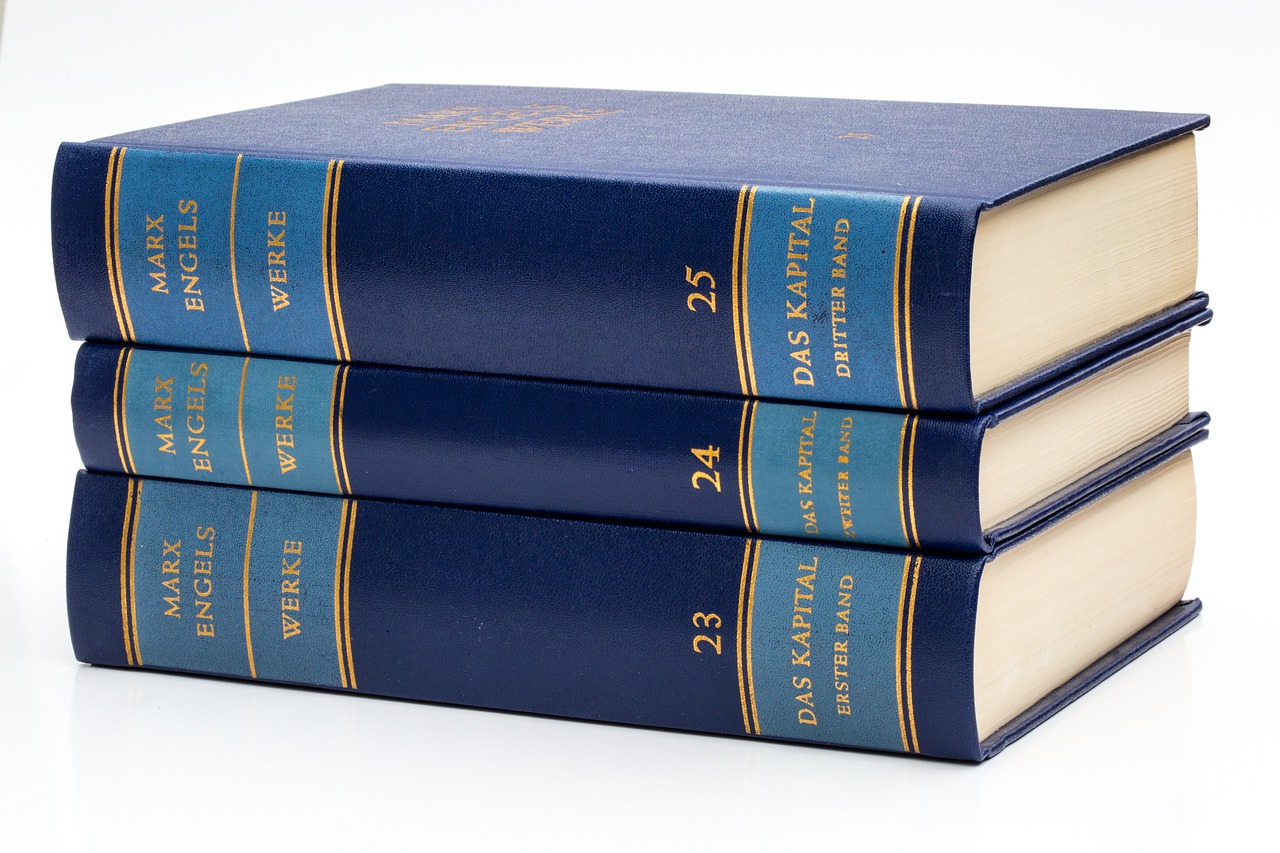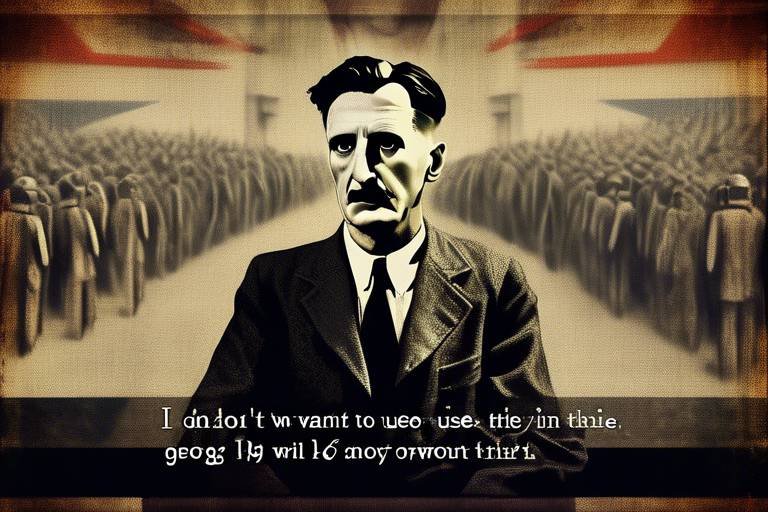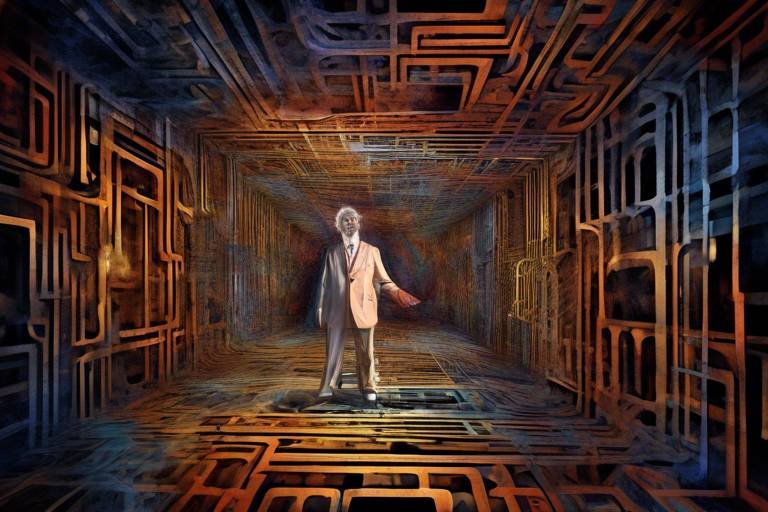Perspectives on Human Nature - Thomas Hobbes's View
When we dive into the mind of Thomas Hobbes, we find ourselves in a world shaped by his stark views on human nature. Hobbes, a 17th-century philosopher, painted a rather grim picture of humanity, suggesting that without the constraints of society, individuals would revert to a state of chaos and violence. His ideas are not just relics of the past; they resonate deeply in our understanding of governance, authority, and human behavior today. So, what exactly did Hobbes believe about human nature, and how does it influence our modern world? Let's unravel this philosophical puzzle.
Hobbes described the state of nature as a pre-societal condition where life is solitary, poor, nasty, brutish, and short. Imagine a world without rules or order—where every person is out for themselves. In this chaotic landscape, there are no laws to protect individuals, no societal structures to provide safety, and no moral compass to guide actions. Hobbes argued that in such a world, fear and self-preservation would dominate human behavior. It’s like being dropped into a jungle with no survival skills; the only instinct is to fight or flee. This bleak perspective emphasizes the necessity of a governing authority to maintain peace and prevent the descent into anarchy.
Central to Hobbes's philosophy is the concept of the social contract. This theory posits that individuals collectively agree to surrender certain freedoms to a sovereign in exchange for security and order. Think of it as a deal: you give up some personal liberties, and in return, you gain protection and stability. This agreement is not just a theoretical construct; it’s the foundation of organized society. Hobbes believed that without this contract, the natural state of humanity would inevitably lead to conflict and chaos.
To maintain this order, Hobbes argued for an absolute sovereign. He believed that a powerful ruler is essential to enforce laws and ensure peace. In Hobbes's view, a strong authority is like a lighthouse in a stormy sea, guiding ships safely to shore. Without such a figure, the risk of returning to the chaotic state of nature looms large. The sovereign's power must be unquestioned; any challenge to it could spiral into disorder, much like a dam breaking and flooding the land.
According to Hobbes, the legitimacy of authority stems from the consent of the governed. People accept the sovereign's power because it guarantees their safety. It’s a bit like a safety net; you may not want to give up your freedom, but the fear of falling into chaos makes the trade-off worthwhile. This consent is crucial; without it, the social contract collapses, and the foundation of society begins to crumble.
Hobbes was particularly wary of rebellion. He warned that any challenge to the sovereign could lead to civil war, resulting in a breakdown of societal order. Imagine a tightly woven fabric; if one thread is pulled, the entire structure can unravel. This idea highlights the fragile nature of social contracts and the dire consequences that can arise when authority is questioned. Hobbes’s philosophy serves as a cautionary tale, reminding us of the potential chaos that can ensue when the delicate balance of power is disrupted.
At the core of Hobbes's thought is the belief that humans are primarily motivated by self-interest and fear. He viewed these drives as fundamental to understanding individual actions and societal dynamics. Much like a game of chess, where each move is calculated and strategic, human behavior is often driven by the desire to gain advantage while avoiding threats. This perspective challenges more optimistic views of human nature, suggesting that altruism and cooperation are secondary to survival instincts.
While Hobbes's views have been incredibly influential, they have also faced significant critiques. Many argue that his perspective is overly pessimistic, ignoring the potential for cooperation and moral behavior in society. Critics suggest that humans are capable of empathy and altruism, which contradicts Hobbes's notion of self-interest as the primary motivator. This debate raises important questions about the nature of humanity and the role of government in fostering a more cooperative society.
Philosophers like Rousseau and Locke offered contrasting views on human nature, emphasizing the potential for cooperation and moral behavior. Unlike Hobbes, who saw the need for a powerful ruler to maintain order, these thinkers believed that humans could govern themselves through reason and collective will. This divergence in thought has shaped political philosophy, leading to various interpretations of governance and human nature.
Despite the critiques, Hobbes's ideas remain relevant today. His thoughts influence contemporary discussions on governance, authority, and the balance between individual rights and societal order. In a world grappling with issues of power dynamics and social contracts, Hobbes's insights serve as a reminder of the delicate balance required to maintain peace in society. As we navigate the complexities of modern life, his philosophy continues to provoke thought and debate.
- What is Hobbes's view on the state of nature?
Hobbes believed the state of nature is chaotic and violent, where life is solitary and brutish without societal structures. - What is the social contract theory?
It is the idea that individuals give up certain freedoms to a sovereign in exchange for security and order. - Why is absolute sovereignty important according to Hobbes?
Hobbes argued that a strong ruler is necessary to maintain peace and prevent a return to chaos. - What are the critiques of Hobbes's philosophy?
Critics argue that Hobbes's view is overly pessimistic and neglects the potential for cooperation and moral behavior in humans.

The State of Nature
Thomas Hobbes's concept of the state of nature is a fascinating yet grim portrayal of human existence without the constraints of society. Imagine a world stripped of laws, rules, and any form of governance. In this chaotic landscape, Hobbes argues that life would be solitary, poor, nasty, brutish, and ultimately short. This vivid description paints a picture of a primal existence where individuals are driven by their most basic instincts, often leading to conflict and violence.
In this state, there are no moral codes to guide behavior, and every person is left to fend for themselves. Hobbes believed that in the absence of a common power to keep people in check, humanity would revert to a savage state, where the strongest would dominate the weak. It's a bit like a jungle where the survival of the fittest reigns supreme. Without a governing authority, chaos would ensue, and the concept of trust would be virtually non-existent.
To further illustrate this, consider the following aspects of Hobbes's state of nature:
- No security: Individuals constantly live in fear of being attacked or robbed.
- Endless competition: Survival instincts lead to a struggle for resources, resulting in conflict.
- Lack of cooperation: Without a social contract, collaboration is rare, as everyone is primarily concerned with their own survival.
In essence, Hobbes's depiction serves as a stark warning about the dangers of an unregulated society. He believed that only through the establishment of a powerful governing body could individuals escape this grim reality. The idea of a social contract emerges as a solution, where people collectively agree to relinquish certain freedoms in exchange for security and order. This transition from the chaotic state of nature to a structured society is a central theme in Hobbes's philosophy, emphasizing the necessity of authority to maintain peace.
Hobbes's views have sparked significant debate among philosophers and political theorists. Some argue that his perspective is overly pessimistic, while others believe it provides a crucial understanding of human behavior. Regardless, his insights into the state of nature remain relevant in discussions about governance and social order even today.

Social Contract Theory
At the heart of Thomas Hobbes's philosophy lies the concept of the social contract, a foundational theory that attempts to explain the origins of society and the legitimacy of governmental authority. Imagine a time before society existed, where humans roamed freely but were also at the mercy of their own instincts and fears. In this chaotic landscape, Hobbes posited that individuals would eventually recognize the need to band together for their own survival. This led to the idea that people would collectively agree to surrender some of their freedoms in exchange for security and order provided by a governing authority.
Hobbes believed that this social contract was not merely an abstract idea but a practical solution to the anarchy that characterized the state of nature. Individuals, driven by self-interest and the desire for self-preservation, would willingly submit to a sovereign power—a ruler or a governing body—capable of enforcing laws and maintaining peace. This surrender of certain rights was seen as a necessary sacrifice to escape the brutal conditions of life without a governing force. In essence, it was a trade-off: freedom for security.
One of the most compelling aspects of Hobbes's theory is the emphasis on absolute sovereignty. He argued that for the social contract to be effective, the sovereign must possess undivided authority. This means that the ruler's power should not be challenged, as any dissent could lead to a breakdown of order and a return to the chaotic state of nature. The absolute authority of the sovereign is crucial because it ensures that laws are enforced uniformly, and individuals can feel safe in their daily lives. Without this certainty, fear and distrust would reign supreme, undermining the very fabric of society.
However, this brings us to a critical question: where does the legitimacy of this authority come from? According to Hobbes, it stems from the consent of the governed. The citizens, by agreeing to the social contract, grant the sovereign the right to wield power over them. This consent is not just a one-time agreement; it is an ongoing relationship where the governed must acknowledge the authority of the ruler in exchange for protection and stability. If the sovereign fails to provide these basic needs, the contract could be considered void. Yet, Hobbes warned that rebellion against this authority could lead to disastrous consequences, including civil war and the collapse of societal order.
In summary, Hobbes's social contract theory presents a compelling framework for understanding the relationship between individuals and their government. It highlights the delicate balance between individual freedoms and the need for security within a structured society. By surrendering certain rights, individuals gain the protection necessary to thrive, but this also raises important discussions about the extent of governmental power and the rights of citizens. As we navigate modern governance, Hobbes's insights continue to resonate, prompting us to consider how far we are willing to go to ensure our safety and order.

Absolute Sovereignty
When we dive into the heart of Thomas Hobbes's philosophy, we encounter the concept of , which he regarded as crucial for maintaining societal order. Hobbes believed that, in order to escape the chaos of the state of nature—a place where life is described as solitary, poor, nasty, brutish, and short—humans must collectively submit to a powerful ruler or sovereign. This sovereign, whether a monarch or an assembly, would wield ultimate authority, ensuring that peace prevails over the anarchy that lurks beneath the surface of human existence.
But what does it mean to have an absolute sovereign? Essentially, Hobbes argued that this ruler must possess the authority to make laws, enforce them, and even interpret them. The power of the sovereign is not merely a suggestion; it is a necessity. Without such authority, Hobbes feared that society would descend back into the violent and chaotic state of nature, where every individual is pitted against the other, driven by fear and self-interest. In this view, the sovereign acts as a stabilizing force, preventing the breakdown of order and ensuring the safety of its subjects.
Hobbes’s vision of absolute sovereignty is strikingly different from modern democratic ideals. Today, we often celebrate the idea of shared power and the importance of checks and balances. However, Hobbes would argue that these concepts could lead to a weakened state, susceptible to disorder and conflict. To illustrate this point, consider a table comparing Hobbes's view of sovereignty with modern democratic principles:
| Aspect | Hobbes's View | Modern Democratic View |
|---|---|---|
| Source of Authority | Absolute Sovereign | Consent of the Governed |
| Power Structure | Centralized | Decentralized |
| Role of Citizens | Subjects | Active Participants |
| Response to Threats | Suppression of Dissent | Protection of Rights |
This stark contrast highlights Hobbes's belief in the necessity of a strong, centralized power to prevent the chaos of human nature from spilling into everyday life. He posited that only through absolute sovereignty could individuals truly feel secure, as it is the sovereign's duty to protect them from both external threats and the inherent selfishness of their fellow humans.
Moreover, Hobbes was acutely aware of the consequences of a weakened sovereign. He warned that any challenge to the authority of the sovereign could lead to rebellion, civil war, and ultimately, the collapse of societal order. In a world where self-interest reigns supreme, the absence of a strong leader could unleash a torrent of violence and disorder, undermining the very fabric of society.
This perspective raises a thought-provoking question: can absolute power ever be justified? While many might argue that absolute power corrupts absolutely, Hobbes would counter that it is precisely this concentration of authority that is essential for maintaining peace and security. In his view, the risks of disorder far outweigh the potential abuses of power that could arise from an absolute sovereign.
In conclusion, Hobbes's concept of absolute sovereignty is a compelling, albeit controversial, aspect of his philosophy. It forces us to grapple with the balance between freedom and security, a theme that resonates deeply in contemporary discussions about governance and authority. As we navigate the complexities of modern society, Hobbes's insights remind us of the delicate dance between individual rights and the need for a strong, protective state.
- What is absolute sovereignty?
Absolute sovereignty refers to the idea that a single ruler or governing body holds ultimate authority over a society, necessary for maintaining order and preventing chaos. - How does Hobbes's view differ from modern democratic ideals?
Hobbes believed in a centralized power structure, while modern democracies emphasize shared power and the consent of the governed. - What are the dangers of rebellion according to Hobbes?
Hobbes warned that rebellion against the sovereign could lead to civil war and societal collapse, as it undermines the stability provided by absolute authority. - Can absolute power be justified?
While many believe that absolute power leads to corruption, Hobbes argued that it is essential for maintaining peace and security in society.

Legitimacy of Authority
The concept of is a cornerstone of Thomas Hobbes's political philosophy. According to Hobbes, authority is not just about power; it is about the consent of the governed. This means that individuals within a society agree to submit to a sovereign power in exchange for protection and stability. But what does this really entail? It’s a bit like entering into a social contract where both parties have clear expectations. The citizens give up certain freedoms, while the sovereign promises to maintain order and protect them from the chaos of the state of nature.
Hobbes believed that this contract is essential for a functioning society. Without it, there would be no legitimacy to the authority wielded by any ruler. The sovereign, whether a monarch or a collective body, derives its power from the collective agreement of the people. This is crucial because it shifts the focus from the might of the ruler to the will of the governed. In essence, the is rooted in the idea that the state's power is granted by the consent of its people, making it a moral obligation for the sovereign to act in the best interests of society.
Furthermore, Hobbes argued that when the authority is seen as legitimate, it fosters a sense of trust and cooperation among the populace. People are more likely to follow laws and regulations when they believe that their leaders have the right to govern. However, if this trust is broken—if the sovereign fails to protect its citizens or abuses its power—the legitimacy of that authority can come into question. This is where the delicate balance of power and responsibility lies. The sovereign must not only govern effectively but also maintain the trust of the people.
In contemporary discussions, the idea of legitimacy remains highly relevant. Governments are constantly challenged to prove their authority through transparency, accountability, and responsiveness to the needs of their citizens. The rise of democratic ideals has further complicated this relationship, as people increasingly demand a say in how they are governed. In this light, Hobbes's insights into the legitimacy of authority remind us that power is not just about control; it is fundamentally about the relationship between rulers and the ruled.
To illustrate this concept, consider the following table that summarizes Hobbes's view on legitimacy:
| Aspect | Hobbes's Perspective |
|---|---|
| Source of Authority | Consent of the governed |
| Nature of Power | Derived from social contract |
| Role of Sovereign | Protector and maintainer of order |
| Consequences of Breach | Loss of legitimacy and potential chaos |
In conclusion, Hobbes's exploration of the legitimacy of authority serves as a powerful reminder of the intricate balance between power and accountability. It challenges us to reflect on our own societal structures and the importance of maintaining a government that is not only powerful but also legitimate in the eyes of its citizens.
- What is the main idea behind Hobbes's legitimacy of authority?
Hobbes believed that authority is legitimate only when it is based on the consent of the governed, creating a social contract that ensures protection and order. - How does Hobbes's view differ from other philosophers?
Unlike Rousseau or Locke, who emphasize the potential for cooperation and moral behavior, Hobbes has a more pessimistic view, focusing on self-interest and fear as primary motivators. - Why is the legitimacy of authority important in modern governance?
It is crucial because it fosters trust between the government and its citizens, ensuring that people are willing to abide by laws and regulations.

Consequences of Rebellion
When we delve into Hobbes's philosophy, one of the most striking aspects is his stark warning about the . He believed that challenging the sovereign authority could lead to catastrophic outcomes, akin to pulling the thread of a well-woven tapestry—once it starts unraveling, the entire fabric of society risks falling apart. Hobbes argued that in the absence of a strong, centralized power, chaos would reign supreme, reminiscent of the state of nature he so vividly described.
To Hobbes, rebellion isn't just a simple act of defiance; it is a plunge into a world where the rules of civilization cease to exist. Imagine living in a society where trust evaporates and every individual is left to fend for themselves. The implications of such a breakdown are profound and alarming. Hobbes posited that civil wars could erupt, leading to widespread violence and insecurity, where life becomes a desperate struggle for survival. In this scenario, the very essence of human existence—community, safety, and order—disintegrates.
Furthermore, Hobbes's perspective highlights a critical point: the legitimacy of authority comes from the consent of the governed. When that consent is withdrawn through rebellion, the social contract is broken, and the consequences can be dire. The sovereign, who is tasked with maintaining peace and security, may resort to draconian measures to restore order, which can lead to an even greater loss of individual freedoms. Thus, rebellion can inadvertently create a vicious cycle of oppression, where the initial act of defiance leads to a harsher regime, further suppressing the very rights the rebels sought to protect.
In essence, Hobbes viewed rebellion as a double-edged sword. While it may emerge from a genuine desire for change or justice, the fallout can be devastating, often leaving individuals worse off than before. This perspective raises important questions for us today: Is rebellion ever justified? Can it lead to a better society, or does it merely plunge us back into chaos? These inquiries resonate in contemporary discussions about governance and authority, reminding us of the delicate balance between individual rights and the need for a stable society.
In conclusion, Hobbes's warnings about rebellion serve as a cautionary tale. They compel us to consider the broader implications of challenging authority and the potential repercussions that can arise from such actions. As we navigate our modern world, it is essential to reflect on these lessons, understanding that the quest for justice must be tempered with a recognition of the importance of maintaining order and stability.
- What did Hobbes believe about human nature? Hobbes believed that humans are primarily driven by self-interest and fear, which shapes their behavior in society.
- Why did Hobbes advocate for an absolute sovereign? He argued that a strong ruler is essential to maintain peace and prevent society from descending into chaos.
- What are the consequences of rebellion according to Hobbes? Rebellion can lead to civil war, loss of order, and a return to the state of nature, resulting in widespread violence and insecurity.
- How do Hobbes's ideas relate to modern governance? His thoughts continue to influence discussions on authority, individual rights, and the balance between freedom and societal order.

Human Motivation
When we dive into the intricate world of , it's essential to understand that Thomas Hobbes painted a rather stark picture. He believed that the driving forces behind human actions are primarily rooted in self-interest and fear. This perspective suggests that individuals are constantly navigating a landscape where their primary concern is survival and personal gain. Imagine a world where every decision you make is influenced by the need to protect yourself or to gain an advantage—this is the essence of Hobbes's view on motivation.
Hobbes argued that in the absence of a governing authority, the chaos of the state of nature would reign supreme. In such a scenario, individuals are compelled to act in ways that ensure their own safety and well-being. This leads to a reality where trust is scarce, and relationships between people are transactional rather than genuine. Think of it like a game of chess: every move is calculated not just for victory, but to prevent being checkmated by an opponent. In Hobbes's world, the stakes are high, and the fear of loss drives behavior.
Moreover, Hobbes's assertion that humans are fundamentally self-interested raises intriguing questions about society and morality. If we operate under the assumption that our motivations are selfish, can we ever truly act altruistically? This is a debate that continues to resonate in contemporary discussions about ethics and human behavior. Are we capable of genuine kindness, or is every act of generosity merely a reflection of our desire to be seen favorably or to avoid guilt?
In Hobbes's framework, the implications of these motivations extend beyond individual behavior; they shape the very fabric of society. For instance, when people come together to form a social contract, they do so out of a mutual understanding of their self-interests. They recognize that by surrendering certain freedoms to a sovereign authority, they can achieve a sense of security that would otherwise be unattainable in a state of nature. This delicate balance of power and motivation is what underpins Hobbes's political philosophy.
To illustrate Hobbes's view on human motivation further, let's consider a simple table that highlights the main driving forces according to his philosophy:
| Driving Force | Description |
|---|---|
| Self-Interest | The pursuit of individual gain and personal advantage. |
| Fear | The instinctual reaction to threats, leading to self-preservation behaviors. |
| Desire for Security | The need to feel safe and protected within a structured society. |
In conclusion, Hobbes's perspective on human motivation reveals a complex interplay of self-interest, fear, and the quest for security. While some may view this outlook as pessimistic, it offers a lens through which we can examine our own behaviors and societal structures. So, the next time you find yourself questioning why people act the way they do, remember Hobbes and his belief that at the core of our actions lies a primal instinct for survival.
- What does Hobbes mean by self-interest?
Hobbes suggests that individuals act primarily to benefit themselves, often prioritizing personal gain over collective well-being. - How does fear influence human behavior according to Hobbes?
Fear drives individuals to make decisions that prioritize their safety, often leading to distrust and competition among people. - What is the social contract in Hobbes's philosophy?
The social contract is an agreement among individuals to surrender certain freedoms to a sovereign authority in exchange for security and order. - How relevant are Hobbes's ideas today?
Hobbes's ideas remain pertinent in discussions about governance, authority, and the balance between individual rights and societal stability.

Critiques of Hobbes
While Thomas Hobbes's perspectives on human nature and society have significantly shaped political philosophy, they have also attracted a plethora of critiques. Many scholars and philosophers have taken issue with his rather bleak view of human nature, which posits that humans are inherently selfish and driven by fear. Critics argue that this perspective oversimplifies the complexities of human behavior and overlooks the potential for altruism and cooperation.
One of the most prominent critiques comes from the philosopher Jean-Jacques Rousseau, who challenged Hobbes's assertion that the state of nature is a place of chaos and violence. Rousseau believed that humans in their natural state are inherently good and that it is society that corrupts them. He argued that the formation of social contracts should emphasize collective well-being rather than absolute control, suggesting that Hobbes's view leads to an unjust and oppressive system of governance.
Furthermore, critics have pointed out that Hobbes's advocacy for an absolute sovereign raises profound questions about the implications of such concentrated power. The fear is that granting unchecked authority to a ruler can lead to tyranny, where the very protection promised to the people can be wielded against them. This concern is particularly relevant in contemporary discussions about human rights and the balance of power in government.
Another important point of contention is Hobbes's notion of the social contract itself. While Hobbes believed that individuals willingly surrender their rights for security, critics argue that this assumption is flawed. Many contend that not all individuals consent to such arrangements, especially marginalized communities who may find themselves disproportionately affected by the decisions of a sovereign. This raises questions about the legitimacy of authority and whether it is truly representative of the collective will of the people.
In addition to these philosophical critiques, there are also empirical arguments against Hobbes's views. Modern psychology and sociology have provided evidence that humans are capable of cooperation, empathy, and moral reasoning, which contradicts Hobbes's assertion of self-interest as the primary motivation behind human actions. Studies in various cultures have shown that people often act in ways that prioritize the well-being of others, challenging the notion that fear and self-interest are the sole drivers of human behavior.
In summary, while Hobbes's theories laid the groundwork for modern political thought, they are not without their flaws. His pessimistic view of human nature, the implications of absolute power, and the legitimacy of the social contract have all been subjects of rigorous debate. As society continues to evolve, these discussions remain vital in understanding the complexities of governance and human interaction.
- What is Hobbes's view on human nature? Hobbes believed that humans are inherently selfish and driven by fear, leading to a chaotic state of nature without a governing authority.
- How does Hobbes's social contract theory work? According to Hobbes, individuals agree to surrender certain freedoms to a sovereign in exchange for security and order in society.
- What are some critiques of Hobbes's philosophy? Critics argue that Hobbes's view is overly pessimistic, neglects the potential for cooperation, and raises concerns about the dangers of absolute power.
- Who are some philosophers that oppose Hobbes's views? Notable philosophers like Jean-Jacques Rousseau and John Locke present alternative perspectives that emphasize the goodness of human nature and the importance of individual rights.

Alternative Philosophies
While Thomas Hobbes's perspective on human nature paints a rather bleak picture, suggesting that humans are inherently selfish and driven by fear, other philosophers have offered contrasting views that illuminate the complexity of human behavior. Think of Hobbes as the dark cloud looming over the sunny landscape of human potential. Philosophers like Jean-Jacques Rousseau and John Locke have provided alternative frameworks that highlight the capacity for cooperation, altruism, and moral behavior within society.
Rousseau, for instance, believed in the idea of the "noble savage," positing that humans are born inherently good but are corrupted by society. In his view, the natural state of humanity is one of peace and community, where individuals are connected to one another and to nature. This perspective suggests that the chaos Hobbes described is not an inevitable outcome of human nature but rather a byproduct of societal structures that prioritize competition and individualism over collaboration and empathy.
Locke, on the other hand, introduced the concept of the tabula rasa or blank slate, arguing that individuals are shaped by their experiences. He believed that humans possess natural rights to life, liberty, and property, and that society should be structured to protect these rights. In Locke's view, the social contract is not merely about surrendering freedoms to a sovereign; it is about creating a government that derives its authority from the consent of the governed, emphasizing a more democratic and participatory approach to governance.
Both Rousseau and Locke challenge Hobbes's notion of absolute sovereignty. They argue that a government should be accountable to the people and that individuals should have the right to revolt against tyranny. This perspective not only fosters a sense of empowerment among citizens but also underscores the importance of a balanced relationship between authority and individual freedoms. Rather than viewing human nature as a constant struggle for power, these alternative philosophies suggest that cooperation and mutual respect can lead to a more harmonious society.
In a world where political discourse often echoes Hobbes's fears of chaos and disorder, the ideas of Rousseau and Locke remind us that human nature is not a fixed entity. Just as a garden can flourish with the right care and conditions, so too can society thrive when individuals are encouraged to connect, collaborate, and contribute to the common good. These alternative philosophies serve as a beacon of hope, suggesting that we have the potential to shape our societies in ways that reflect our better selves.
- What is Hobbes's view on human nature? Hobbes believed that humans are inherently selfish and driven by fear, leading to a chaotic state of nature without a governing authority.
- How do Rousseau and Locke differ from Hobbes? Rousseau emphasizes the inherent goodness of humans, while Locke focuses on the importance of protecting natural rights and the role of consent in governance.
- Why is the social contract important? The social contract outlines the agreement between individuals and their government, establishing the basis for authority and the protection of rights.
- Can Hobbes's ideas be applied to modern society? Yes, Hobbes's concepts of governance and authority are still relevant today, especially in discussions about the balance between individual rights and societal order.

Modern Relevance
Thomas Hobbes's ideas about human nature and governance are not just relics of the past; they resonate deeply in our contemporary society. In a world where political instability and social unrest are prevalent, Hobbes's views on the necessity of a strong governing authority seem more relevant than ever. His assertion that without a powerful sovereign, chaos reigns, is echoed in the headlines we read daily. Just think about it: when authority falters, what happens? We often witness the breakdown of order, leading to violence and anarchy. This brings us to the heart of Hobbes's philosophy: the delicate balance between individual freedoms and societal order.
In today's context, the implications of Hobbes's social contract theory can be seen in various governance models across the globe. Countries that prioritize security over personal liberties often justify their actions by referencing Hobbesian principles. For instance, in times of crisis—be it a pandemic or civil unrest—governments may implement strict measures that limit personal freedoms, arguing that these actions are necessary to maintain order and protect citizens. This raises a critical question: how much freedom are we willing to surrender for the sake of security?
Moreover, Hobbes's emphasis on human motivation being driven by self-interest and fear is evident in modern political discourse. Politicians often exploit these emotions to rally support or justify controversial policies. For example, during elections, fear-based campaigning can manipulate public perception, leading to divisive politics that mirror Hobbes's view of humanity's darker instincts. This manipulation poses a challenge for democratic societies that aim to foster cooperation and collective well-being.
Interestingly, Hobbes's ideas have sparked a plethora of debates among contemporary philosophers and political theorists. Some scholars argue that while Hobbes's perspective on human nature is pessimistic, it serves as a cautionary tale about the potential for tyranny when authority goes unchecked. The balance between individual rights and the power of the state remains a hot topic, with many advocating for a return to more democratic principles that emphasize civic engagement and accountability.
To illustrate the ongoing relevance of Hobbes's thought, consider the following table that compares his views with those of other influential philosophers:
| Philosopher | View on Human Nature | Governance Philosophy |
|---|---|---|
| Thomas Hobbes | Pessimistic; driven by self-interest and fear | Absolute sovereignty to maintain order |
| John Locke | Optimistic; humans are rational and cooperative | Government with consent of the governed |
| Jean-Jacques Rousseau | Inherently good, corrupted by society | Direct democracy and social equality |
In conclusion, Hobbes's insights into human nature and the structure of society continue to provoke thought and discussion. As we navigate the complexities of modern life, his warnings about the fragility of order and the consequences of rebellion serve as a reminder of the delicate balance we must maintain between freedom and authority. The question remains: can we find a way to embrace our freedoms while ensuring the stability that Hobbes deemed essential for a functioning society?
- What is Hobbes's view on the state of nature? Hobbes believed that the state of nature is a chaotic condition where life is "solitary, poor, nasty, brutish, and short" without a governing authority.
- How does Hobbes define the social contract? The social contract is an agreement among individuals to surrender certain freedoms to a sovereign in exchange for security and order.
- What warnings did Hobbes give regarding rebellion? Hobbes warned that rebellion against the sovereign could lead to civil war and the collapse of societal order.
- How do modern political systems reflect Hobbes's philosophy? Many modern political systems prioritize security over individual freedoms, echoing Hobbes's belief in the necessity of a strong governing authority.
Frequently Asked Questions
- What is Hobbes's view on the state of nature?
Hobbes describes the state of nature as a chaotic and violent condition where life is solitary, poor, nasty, brutish, and short. Without a governing authority, individuals are in constant conflict, driven by their self-interest and fear.
- What is the social contract theory proposed by Hobbes?
Hobbes's social contract theory suggests that individuals agree to surrender some of their freedoms to a sovereign authority in exchange for security and order. This mutual agreement is essential for preventing the chaos of the state of nature.
- Why does Hobbes advocate for an absolute sovereign?
Hobbes believes that a powerful ruler is necessary to maintain peace and stability in society. He argues that an absolute sovereign can effectively prevent the return to the disorderly state of nature, ensuring the safety of its citizens.
- How does Hobbes justify the legitimacy of authority?
According to Hobbes, the legitimacy of authority comes from the consent of the governed. People accept the power of the sovereign in return for protection and stability, which forms the basis of a functioning society.
- What are the consequences of rebellion in Hobbes's philosophy?
Hobbes warns that any challenge to the sovereign's authority could lead to civil war and the collapse of societal order. He emphasizes the importance of maintaining loyalty to prevent chaos and disorder.
- What motivates human behavior according to Hobbes?
Hobbes views humans as primarily motivated by self-interest and fear. These drives shape individual actions and influence the dynamics of society, leading to competition and conflict without a governing authority.
- What critiques exist against Hobbes's views?
While Hobbes's ideas are influential, they face critiques for being overly pessimistic about human nature. Critics argue that his emphasis on absolute power can undermine individual freedoms and overlooks the potential for cooperation and moral behavior.
- How do alternative philosophies differ from Hobbes's views?
Philosophers like Rousseau and Locke present contrasting perspectives, emphasizing the potential for cooperation and moral behavior in society. They argue that humans are capable of forming positive social bonds without the need for absolute authority.
- Why are Hobbes's ideas still relevant today?
Hobbes's concepts continue to influence contemporary discussions on governance, authority, and the balance between individual rights and societal order. His insights remain significant in understanding the dynamics of power and human behavior in modern society.



















